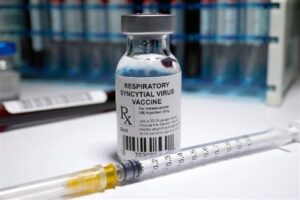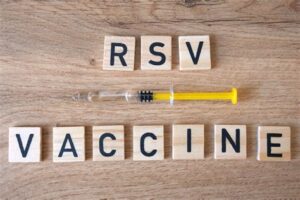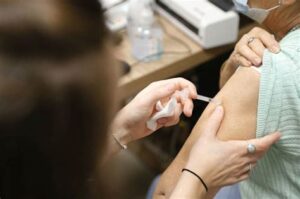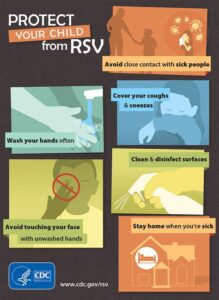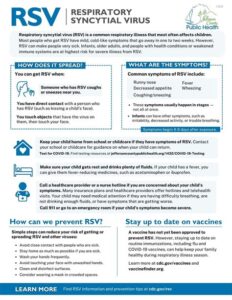Learn about RSV infection, vaccine availability, eligibility, efficacy, and the importance of consulting a healthcare professional for informed decisions.Respiratory Syncytial Virus (RSV) is a common yet often misunderstood viral infection, particularly concerning its implications for health and vaccination. With the recent development of RSV vaccines, many people are curious about their role in preventing and managing RSV infections, especially for those who might already be battling the virus. Can you receive the RSV vaccine if you currently have RSV? This question resonates with parents, caregivers, and at-risk individuals alike. In this blog post, we will explore the intricacies of RSV infection, the availability and eligibility for the RSV vaccine, its efficacy, and the importance of consulting a healthcare professional before making any decisions. Understanding these factors is essential for navigating the complexities of RSV and ensuring the best outcomes for health and well-being.
Understanding RSV Infection
Respiratory Syncytial Virus, commonly referred to as RSV, is a highly contagious virus that primarily affects the respiratory system. It is particularly dangerous for infants, young children, and the elderly, leading to significant healthcare concerns during RSV seasons, typically in fall and winter. RSV can cause mild, cold-like symptoms in healthy adults, but it can result in severe respiratory illness in vulnerable populations.
Symptoms of an RSV infection can include a runny nose, decrease in appetite, coughing, sneezing, fever, and wheezing. In severe cases, RSV can lead to serious conditions such as bronchiolitis and pneumonia, which may require hospitalization. Understanding how RSV spreads and manifest is crucial for effective management and prevention, especially in households with at-risk individuals.
Transmission of RSV occurs through respiratory droplets when an infected person sneezes or coughs. It can also spread by touching surfaces contaminated with the virus. Preventative measures include frequent handwashing, avoiding close contact with sick individuals, and maintaining clean surroundings. Given its ability to spread quickly and its potential severity, public health initiatives often focus on educating caregivers and healthcare providers on the signs and symptoms of RSV.
RSV Vaccine Availability
As respiratory syncytial virus (RSV) continues to impact vulnerable populations, the availability of an RSV vaccine is becoming increasingly critical. In recent years, researchers have made significant strides in developing vaccines to combat this widespread virus, which is known for causing severe respiratory illness, especially in infants and the elderly.
Currently, several RSV vaccine candidates are being tested in clinical trials. These vaccines aim to provide protection against the virus and reduce the severity of the illness in those affected. It’s essential for individuals who are at increased risk of RSV complications, including infants, the elderly, and individuals with underlying health conditions, to stay informed about potential vaccine availability.
In the near future, we anticipate that health authorities will announce the approval and distribution of effective RSV vaccines. It’s important for the public to consult with healthcare professionals about the status of these vaccines, learn about eligibility requirements, and understand how and when to obtain them. As with any vaccine, ensuring availability will depend on successful trials, regulatory approvals, and logistical distribution plans.
Eligibility for RSV Vaccine
Respiratory Syncytial Virus (RSV) is a common viral infection that can lead to severe respiratory issues, especially in infants, older adults, and those with compromised immune systems. Therefore, understanding the eligibility for the RSV vaccine is crucial for at-risk individuals.
| Eligibility Criteria | Details |
|---|---|
| Infants | Infants under 2 years old, especially if they were born prematurely or have certain chronic health conditions. |
| Older Adults | Adults aged 65 and older, who are at higher risk of severe RSV disease. |
| Individuals with Compromised Immune Systems | People with weakened immune systems due to conditions like cancer or HIV/AIDS, or those on immunosuppressive treatments. |
It’s essential to note that eligibility can vary based on local health guidelines and the availability of the vaccine. Some healthcare providers may also use medical history and risk assessment to determine eligibility for additional doses or specific populations. Always consult with a healthcare professional to understand your personal risk and the appropriateness of the RSV vaccine for your situation.
In certain cases, individuals who have previously contracted RSV may still be eligible for the vaccine. This is because the vaccine aims to boost immunity and reduce the severity of future infections. However, it is crucial to consult with a healthcare professional before making any decisions regarding vaccination.
Be sure to keep an eye on local health announcements, as recommendations for RSV vaccination can evolve based on new research and outbreak data. Timely vaccination is key to preventing severe RSV infections, especially for those who fall under the eligible categories.
Efficacy of Vaccine for RSV
Respiratory Syncytial Virus (RSV) is a leading cause of respiratory illness in young children and can be particularly severe in vulnerable populations, including the elderly and those with pre-existing health conditions. The development of an RSV vaccine has garnered significant attention as a critical strategy to reduce the incidence of this infection.
Clinical trials have demonstrated that the RSV vaccine can provide substantial protection against the virus. Recent studies indicate that the vaccine reduces the risk of hospitalization due to RSV by more than 70% in targeted age groups. This efficacy is particularly pronounced during the peak RSV season, which can have profound implications for public health, considering that RSV infections can lead to substantial healthcare costs and caregiver burden.
It’s important to note that while the efficacy of the RSV vaccine is promising, continued research is necessary to ascertain its long-term protection and the need for booster doses. Furthermore, real-world effectiveness, which includes the vaccine’s performance in diverse populations and settings, will be crucial in understanding its overall impact on reducing RSV-related morbidity and mortality.
Consulting a Healthcare Professional
When it comes to understanding RSV (Respiratory Syncytial Virus) and the potential for receiving the RSV vaccine, consulting a healthcare professional is crucial. These medical experts can provide tailored advice based on individual health history and current circumstances, particularly if someone is experiencing symptoms of RSV. It’s vital to engage a healthcare provider who has a comprehensive understanding of respiratory illnesses and the implications of vaccination.
In many cases, receiving the RSV vaccine while currently infected with the virus may not be recommended. The general approach is to wait until recovery, as the immune response may already be engaged against the infection. Your healthcare professional can assist in determining the appropriate timing for vaccination, ensuring both safety and effectiveness.
It’s worth noting that some individuals, particularly infants and elderly patients, may require more specialized assistance from a pediatrician or geriatric care provider. These specialists are often more familiar with the nuances of RSV and its vaccine eligibility criteria. Always consult a healthcare professional to navigate through your options safely and effectively.
Frequently Asked Questions
What is RSV and why is it significant?
RSV, or Respiratory Syncytial Virus, is a common virus that causes respiratory infections, especially in infants and the elderly. It can lead to serious complications like bronchiolitis and pneumonia.
Can individuals who are currently infected with RSV receive the vaccine?
No, it is typically not recommended to receive the RSV vaccine while you are actively infected with the virus. It’s best to wait until you have fully recovered.
What are the symptoms of RSV infection?
Symptoms of RSV infection include runny nose, coughing, sneezing, fever, wheezing, and difficulty breathing, which can vary in intensity.
How does the RSV vaccine work?
The RSV vaccine works by stimulating the immune system to produce antibodies against the virus, helping to prevent severe illness if the virus is contracted in the future.
Who is recommended to receive the RSV vaccine?
The RSV vaccine is generally recommended for high-risk groups, including infants, young children, and elderly individuals with certain health conditions.
Are there any side effects of the RSV vaccine?
Common side effects of the RSV vaccine may include mild fever, fatigue, and pain at the injection site. Most side effects are generally mild and resolve quickly.
What should I do if I suspect I have RSV?
If you suspect you have RSV, especially if you are in a high-risk group, contact a healthcare provider for guidance on management and potential treatment.

